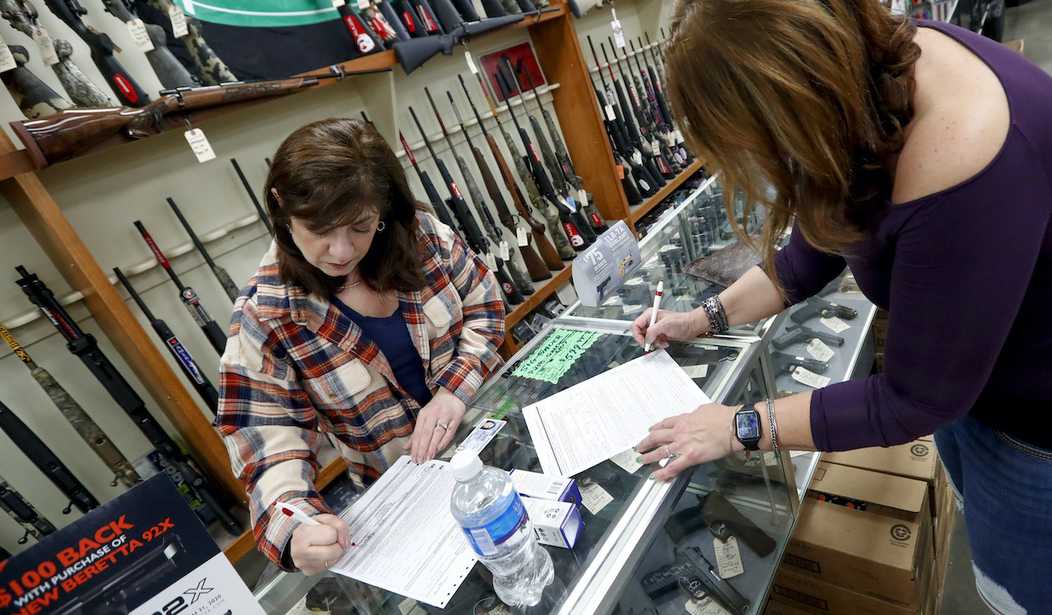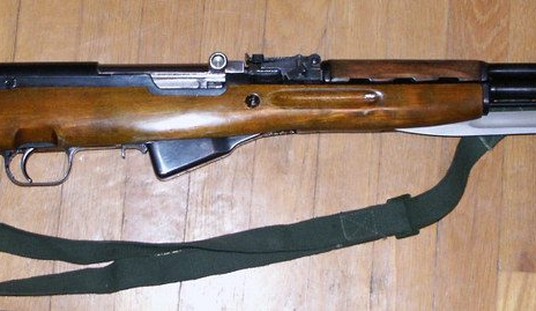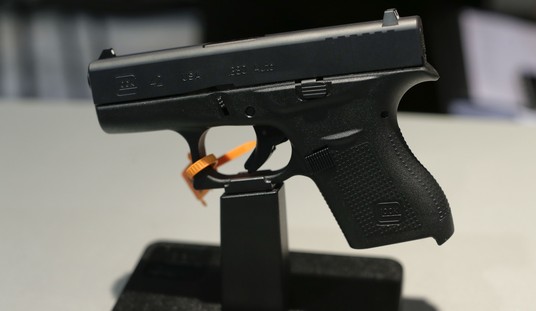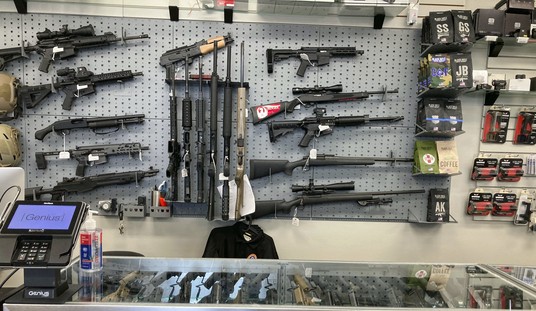With the Supreme Court's decisions in Heller, McDonald, and Bruen, the gun control lobby has lost some of its most potent weapons in its quest to destroy the right to keep and bear arms. Still, the anti-gunners are almost as resilient to court decisions as cockroaches are to radiation, and they've managed to adapt their strategies and tactics in the wake of the Court's rulings.
Categorical bans on entire classes of firearms are off the table, but the gun control lobby is still pushing bans on so-called assault weapons; and more recently, targeting specific brands or models of firearms like Glock pistols. "May issue" carry laws are prohibited, but blue states are still trying to use subjective "suitability" standards in place of a "justifiable need." And while outright bans on gun shops are also on thin legal ground, we've seen multiple communities around the country enact restrictive zoning laws that make it difficult, if not impossible, for FFLs to find a place where they can do business.
In Pennsylvania, Lower Merion Township has adopted that strategy. It passed a zoning ordinance limiting gun shops to just four zoning districts, but also subjected FFLs to twelve different "conditional use" criteria. Though Pennsylvania has a firearms preemption law that prohibits localities from adopting their own gun control laws, Lower Merion Township maintains that these are zoning laws, not gun control ordinances, and therefore don't implicate or run afoul of the preemption statute.
After the township was sued by Firearms Owners Against Crime-Institute for Legislative and Legal Educational Action and a local FFL, a trial court determined that many of those criteria, were, in fact, gun regulations. Now a Commonwealth Court panel has delivered the last blow to the zoning ordinances, declaring that all of them are firearms regulations, not zoning regulations.
Grant Schmid and his company Shot Tec, LLC were subject to the twelve conditional use criteria when the shop moved into a new location. The criteria ranged from not being allowed to operate within 1,000 feet of a school unless the FFL could prove compliance with 18 U.S.C. § 922(q) to mandating security measures like smash-resistant doors and windows and an internal video surveillance system. When Schmid and FOAC-ILLEA sued the township, the trial judge enjoined Lower Merion from enforcing nine criteria and a portion of a tenth, but left in place requirements that FFLs generally not operate within 1,000 feet of a school, produce and keep on file any licenses issued by federal, state, or local officials, and identifying the business’s "reasonable hours of operation."
More importantly, the trial court upheld the zoning restrictions that limited FFLs to a handful of zoning districts. The plaintiffs appealed that decision to the Commonwealth Court, and today they found the relief they were looking for.
We agree with Appellants that state law expressly preempts the ordinance. Per statute, municipalities may not “in any manner regulate the lawful ownership, possession, [or] transfer . . . of firearms,” 18 Pa.C.S. § 6120, nor may they “enact any ordinance . . . dealing with the regulation of the transfer, ownership, transportation or possession of firearms,” 53 Pa.C.S. § 2962(g). The Township’s ordinance here is clearly intended to regulate the sale of firearms, rather than to regulate zoning. It is a gun regulation, not a zoning regulation. The trial court recognized as much when it found most of the conditional use criteria unlawful because they regulate “the method in which [the sale of firearms] is conducted.”
There is a previous case on the books in Pennsylvania colloquially known as Gun Range, where the court did uphold a law restricting gun shops to certain zones. Today's decision doesn't overturn that prior ruling, but the panel noted a distinct difference between the two cases:
Our decision in Gun Range is useful because it is readily distinguished. There, the ordinance limited the zoning districts in which gun shops could be located. When challenged, the municipality claimed the ordinance was permissible as a zoning regulation applied to firearms-related businesses and was not preempted. We held that “because the [zoning ordinance] regulates the location of uses such as a ‘gun shop,’ and does not restrict how the business is conducted or whether it may be conducted within the [municipality], its zoning regulations as to the retail sales of firearms are not preempted by [the UFA].” Gun Range, slip op. at 13. Here, the ordinance does not merely locate FFL businesses. It restricts how they may operate and conduct their business. Thus, on the same rationale as in Gun Range, which we find persuasive, this ordinance is not a permissible zoning regulation, but a preempted gun regulation.
In other words, if Lower Merion Township wants to limit where gun shops can operate it can probably do so, but it can't base license approval on any criteria that are related to firearms. The Commonwealth Court, however, tossed out the ordinance in its entirety, so unless that decision is stayed upon appeal to the Pennsylvania Supreme Court or the township rewrites its zoning laws, FFLs can operate in each and every zoning district in Lower Merion.
I'd argue that Pennsylvania's preemption language that localities cannot “in any manner regulate the lawful ownership, possession, [or] transfer . . . of firearms” means that they can't restrict where those transfers take place, and the plaintiffs may present that argument to the state Supreme Court if Lower Merion Township appeals today's decision. At the very least, though, the Commonwealth Court has made it clear that political subdivisions can't use zoning laws to prevent gun shops from opening anywhere, nor can they impose any firearm-related conditions on FFLs. That's a substantive win for Second Amendment supporters, and a big setback for the anti-gunners trying to make it as hard as possible to keep, bear, and buy arms protected by the Second Amendment.









